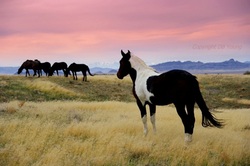
Have you ever lost a friend or got into a fight with a family member because of your beliefs? What about your ideological beliefs?
A friend of mine recently told a prospective boyfriend, "There's something you should know about me before we take this any further. I'm pretty sure I'm a liberal and if that's going to cause problems for us down the road, we need to end this thing right now." Sound crazy? Maybe not!
According to a survey done by neuropolitics.org, most people do consider political beliefs as a criteria in mate selection. I guess that does make sense as people tend to marry others like themselves. Do you really want to spend your life disagreeing about major issues with your partner?
A friend of mine recently told a prospective boyfriend, "There's something you should know about me before we take this any further. I'm pretty sure I'm a liberal and if that's going to cause problems for us down the road, we need to end this thing right now." Sound crazy? Maybe not!
According to a survey done by neuropolitics.org, most people do consider political beliefs as a criteria in mate selection. I guess that does make sense as people tend to marry others like themselves. Do you really want to spend your life disagreeing about major issues with your partner?
If you believe in something, you're going to stand up for it. If you really think you are right about an issue, you might try to convince others that they are wrong. But where do we draw the line in our human relationships? Would you move out of the house because you and your mom voted for different candidates? Would you refuse to serve food to a friend because he was a Conservative and you planned to vote Green? This podcast from "This American Life" tells the story of how political beliefs can ruin friendships and family life and suggests some strategies to overcome that problem.
Taking the opposite view, when uncle died, my aunt told me that after his death, she discovered they had been effectively cancelling one another's vote for the past 50 years.
What do you think? How much does ideology influence your identity? Would you choose or reject a life partner based on ideological belief?
Taking the opposite view, when uncle died, my aunt told me that after his death, she discovered they had been effectively cancelling one another's vote for the past 50 years.
What do you think? How much does ideology influence your identity? Would you choose or reject a life partner based on ideological belief?


 RSS Feed
RSS Feed